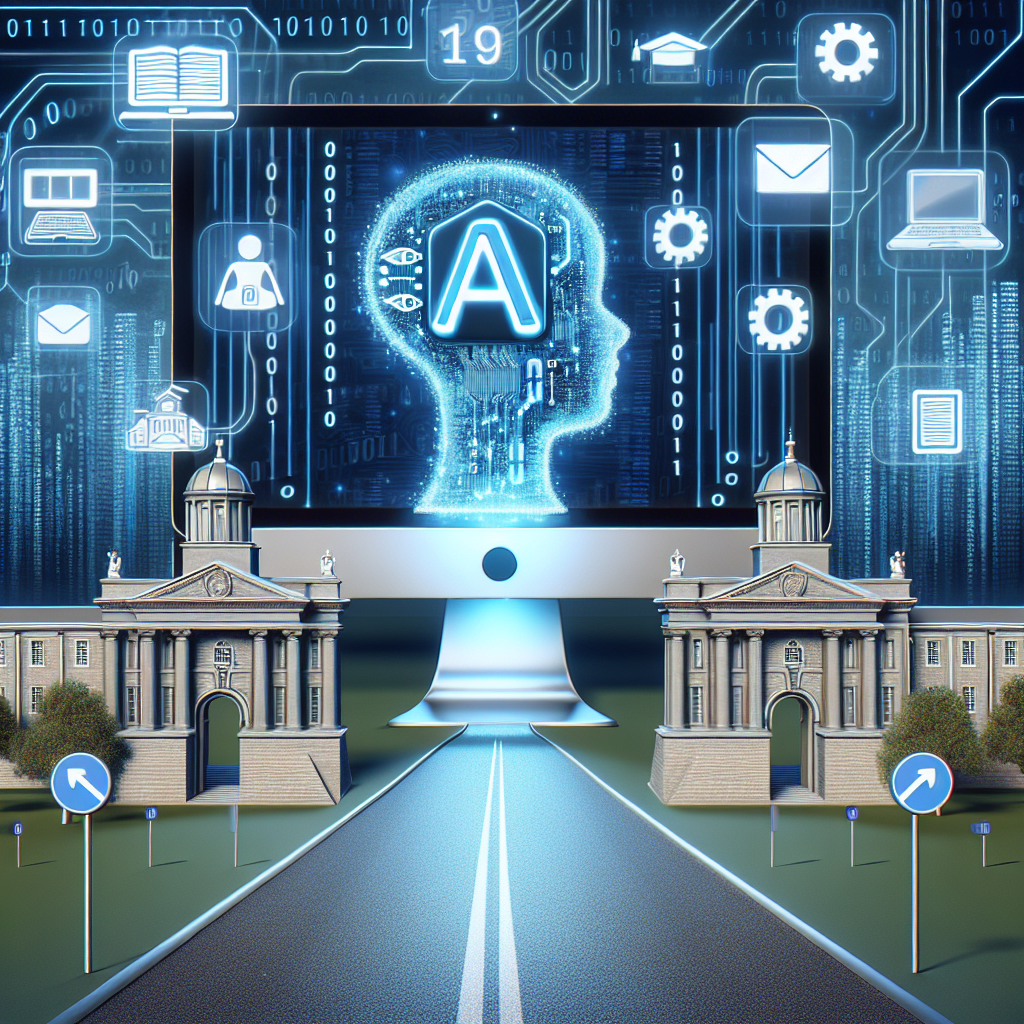Artificial Intelligence (AI) has been transforming various industries, and the field of college admissions is no exception. In recent years, colleges and universities have started using AI algorithms to streamline the admissions process, making it more efficient and effective. This new approach is changing the way students are evaluated for admission, leading to a more data-driven and objective process. In this article, we will explore the impact of AI on college admissions and discuss the future of recruiting in higher education.
The Role of AI in College Admissions
AI technology is being used in college admissions in a variety of ways. One of the main applications of AI in this field is in the evaluation of student applications. AI algorithms can analyze large amounts of data, such as academic records, test scores, extracurricular activities, and personal essays, to assess the potential of each applicant. This data-driven approach allows colleges to make more informed decisions about which students to admit, leading to a more fair and transparent admissions process.
AI is also being used to personalize the admissions experience for students. By analyzing the preferences and interests of individual applicants, colleges can tailor their communications and outreach efforts to better engage with prospective students. This personalized approach can help colleges attract a more diverse and qualified pool of applicants, leading to a more competitive and successful admissions process.
In addition to evaluating student applications, AI technology is also being used to improve the overall admissions process. For example, AI chatbots can provide instant answers to common questions from prospective students, helping to reduce the workload of admissions staff and improve the overall experience for applicants. AI can also be used to automate routine tasks, such as scheduling interviews and sending out acceptance letters, freeing up admissions staff to focus on more strategic initiatives.
The Future of Recruiting in Higher Education
The use of AI in college admissions is still in its early stages, but the potential for growth and expansion is significant. As more colleges and universities adopt AI technology, the admissions process is likely to become even more data-driven and efficient. AI algorithms will continue to evolve and improve, allowing colleges to make more accurate predictions about which students are most likely to succeed on their campuses.
One of the key benefits of using AI in college admissions is the ability to reduce bias and increase diversity in the student body. By relying on objective data and algorithms to evaluate applicants, colleges can reduce the influence of subjective factors, such as race, gender, or socioeconomic status, on admissions decisions. This can help to level the playing field for all students and ensure that admissions decisions are based on merit rather than other factors.
Another potential benefit of using AI in college admissions is the ability to identify students who may be at risk of dropping out or struggling academically. By analyzing data on student performance and behavior, colleges can identify patterns and trends that may indicate a student is struggling and provide targeted support and interventions to help them succeed. This proactive approach can help colleges improve retention rates and ensure that all students have the support they need to thrive academically.
FAQs
Q: Will AI completely replace human admissions officers in the future?
A: While AI technology is becoming more prevalent in college admissions, it is unlikely that it will completely replace human admissions officers. Human judgment and intuition are still valuable in the admissions process, and AI technology is better suited to supplementing and enhancing the work of admissions officers rather than replacing them entirely.
Q: How does AI ensure fairness and reduce bias in the admissions process?
A: AI algorithms are designed to be objective and data-driven, which can help reduce bias in the admissions process. By relying on objective data and algorithms to evaluate applicants, colleges can make more fair and transparent admissions decisions that are based on merit rather than subjective factors.
Q: What are the potential drawbacks of using AI in college admissions?
A: One potential drawback of using AI in college admissions is the risk of relying too heavily on data and algorithms, which may overlook important qualitative factors that are difficult to quantify. Additionally, there are concerns about the privacy and security of student data, as well as the potential for AI algorithms to perpetuate existing biases in the admissions process.
Q: How can students prepare for AI-driven college admissions?
A: Students can prepare for AI-driven college admissions by focusing on building a strong academic record, participating in extracurricular activities, and writing compelling personal essays that highlight their unique strengths and experiences. It is also important for students to stay informed about the latest trends and developments in college admissions and be prepared to adapt to changes in the process.
In conclusion, AI is transforming the field of college admissions and shaping the future of recruiting in higher education. By leveraging the power of AI technology, colleges and universities can improve the efficiency and effectiveness of the admissions process, leading to more fair and transparent decisions. While there are challenges and considerations to address, the potential benefits of using AI in college admissions are significant and will continue to drive innovation in the field.

